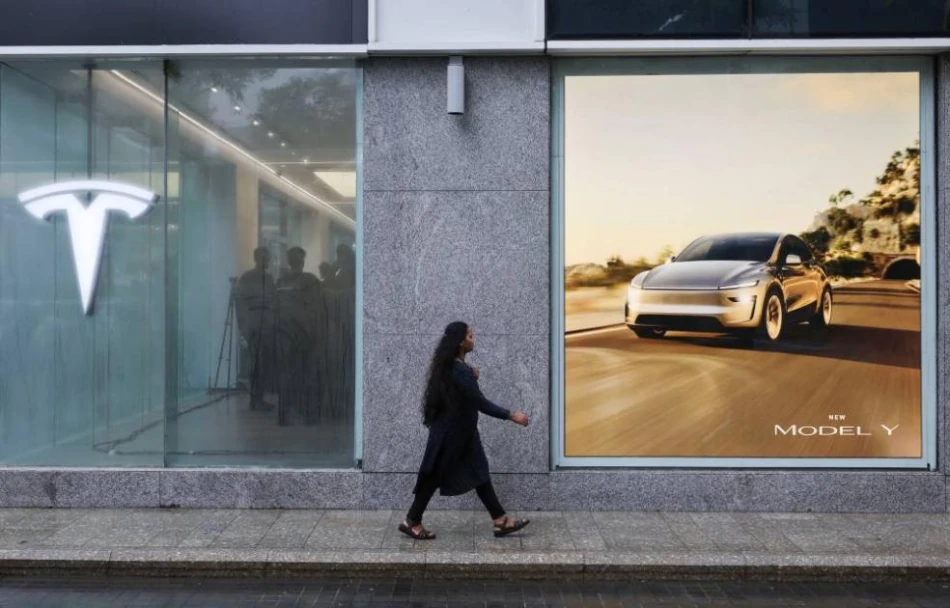
Tesla Unveils First Showroom in India, Driving Expansion in Booming EV Market
Tesla Opens First India Showroom as Musk Pivots to World's Largest Market Amid Western Sales Decline
Tesla has officially entered India's massive automotive market with its first showroom opening in Mumbai, marking a strategic shift for Elon Musk's company as it seeks growth beyond stagnating sales in the United States and Europe. The move represents a calculated bet on India's 1.4 billion consumers and rapidly expanding middle class, despite years of regulatory hurdles that previously blocked Tesla's entry.
Strategic Timing Amid Global Headwinds
The Mumbai showroom launch, inaugurated by Maharashtra Chief Minister Devendra Fadnavis, comes at a critical juncture for Tesla. The company faces mounting pressure from declining sales in its core Western markets, where electric vehicle adoption has plateaued and competition from Chinese manufacturers intensifies. India's emerging EV market, while still nascent, offers Tesla a potential lifeline with its massive population and growing wealth concentration in urban centers.
The showroom initially opened to select visitors, suggesting Tesla is taking a measured approach to gauge market response before full-scale operations commence.
Overcoming India's Tariff Fortress
Tesla's entry required navigating India's notoriously complex trade policies. For years, the company balked at India's steep import tariffs on electric vehicles, with Musk previously criticizing them as "among the highest in the world." This standoff reflected broader tensions between India's protectionist industrial policy and global manufacturers' profit margins.
New Delhi's Compromise Strategy
The breakthrough came through India's revised EV policy, which offers reduced import duties to international automakers willing to commit hundreds of millions in local investments and domestic manufacturing. This carrot-and-stick approach mirrors strategies used by other emerging markets to attract foreign investment while building domestic industrial capacity.
However, Tesla has yet to announce concrete plans for an Indian manufacturing facility, suggesting the company is testing market waters before committing to major capital expenditure.
Market Entry Strategy and Investor Implications
According to local media reports, Tesla plans to initially sell vehicles imported from China, with deliveries expected to begin in late August 2024. This approach allows Tesla to enter the market quickly while avoiding immediate manufacturing commitments—a strategy that could appeal to investors concerned about overextension in uncertain markets.
The China-to-India supply chain route also demonstrates Tesla's ability to leverage its existing Asian manufacturing base, potentially offering better margins than shipping from the United States or Europe.
Broader Implications for Global EV Competition
Tesla's India entry signals intensifying competition for emerging market EV dominance. While Chinese manufacturers like BYD have aggressively expanded globally, Tesla's premium brand positioning could capture India's affluent consumers who view electric vehicles as status symbols rather than mere transportation.
This move also reflects a broader shift in global automotive strategy, where manufacturers increasingly view South Asian markets as critical growth engines amid saturation in developed economies. For Tesla shareholders, India represents both significant opportunity and execution risk, as the company must adapt its premium positioning to local preferences and price sensitivity.
The success of Tesla's Indian venture will likely influence other luxury EV manufacturers' regional strategies and could accelerate India's transition toward electric mobility—a development with implications for global oil demand and climate policy.
Most Viewed News

 Omar Rahman
Omar Rahman






